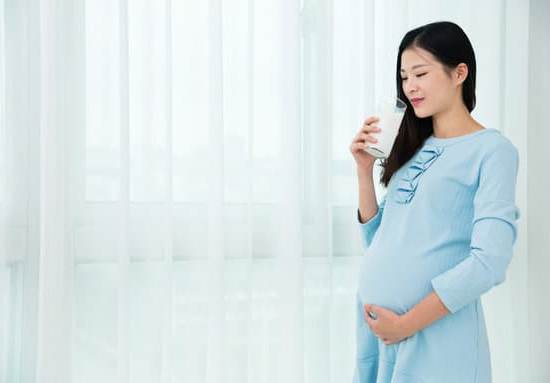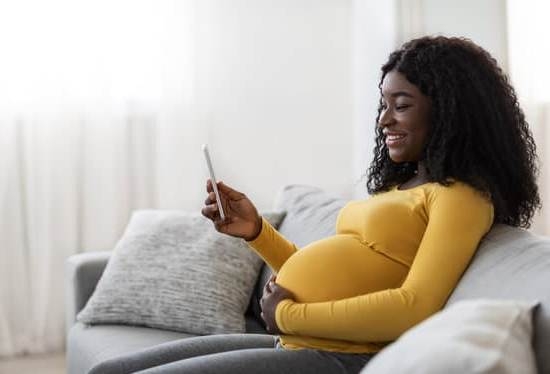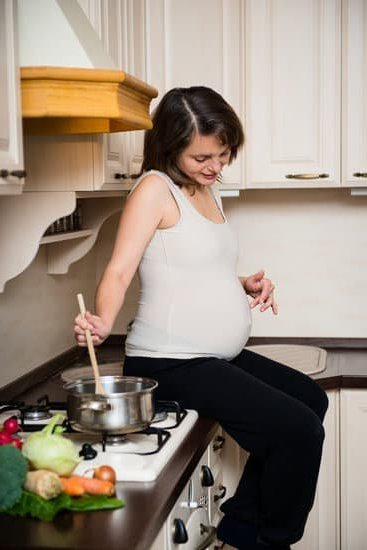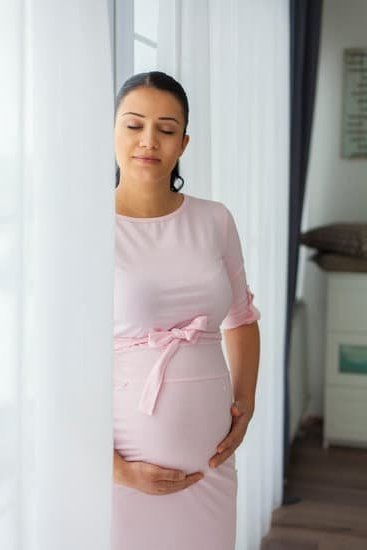During pregnancy, many women experience various physical changes as their bodies adapt to growing a baby. One common phenomenon that expectant mothers may encounter is the “belly button popping.” This occurrence raises the question: when does the belly button pop in pregnancy? Understanding this process and its significance can help individuals navigate this aspect of their prenatal journey with greater ease.
The belly button, or navel, undergoes a transformation during pregnancy due to the expanding uterus pushing against the abdominal wall. As the baby grows, the pressure on the surrounding tissues increases, causing the belly button to protrude outward. The timing of this event varies among women and can occur at different stages of gestation for each individual.
Factors such as genetics, the size of the baby, amniotic fluid levels, and abdominal muscle strength play a role in determining when a woman’s belly button will pop during pregnancy. Additionally, hormonal changes and overall body composition can also influence how pronounced this change may be. Keep reading to learn more about what influences when your belly button may pop and how to manage any discomfort that may arise as a result.
Changes in the Abdomen During Pregnancy
During pregnancy, the abdomen undergoes significant changes to accommodate the growing baby. These changes can affect not only the size and shape of the belly but also lead to alterations in the appearance of the belly button. As the uterus expands to make room for the developing fetus, it pushes against the abdominal wall, causing various adjustments in this area.
To better understand how pregnancy affects the abdomen, here are some common physical changes that occur as the baby grows:
- Increased Size: One of the most noticeable changes is the increase in abdominal circumference as the uterus expands. This growth can lead to stretching of the skin and muscles around the belly button.
- Shifts in Position: As the baby grows, it may move and shift positions within the uterus, causing different parts of the abdomen to protrude or change shape.
- Muscle Separation: During pregnancy, some women experience a condition called diastasis recti, where the abdominal muscles separate due to increased pressure from the growing uterus.
These changes can vary from woman to woman and may depend on factors such as genetic predisposition, previous pregnancies, and overall health. Understanding these physical transformations can help expectant mothers prepare for when their belly button might pop during pregnancy.
In addition to these external changes, internal adjustments also take place as organs shift to make space for the growing fetus. The combination of these factors contributes to when a woman’s belly button may pop during pregnancy. It is essential for pregnant individuals to monitor their bodies closely and consult with healthcare providers if they have any concerns about these physical developments.
Factors Influencing Belly Button Pop
During pregnancy, the phenomenon of the belly button popping out can vary from woman to woman. Several factors influence when this may occur and how pronounced it may be. These factors play a significant role in determining the timeline for when the belly button will pop during pregnancy.
Abdominal Muscles
One of the primary factors that influence when the belly button pops during pregnancy is the tightness of the abdominal muscles. Women with stronger abdominal muscles may notice their belly button protruding later in their pregnancy compared to women with weaker abdominal muscles.
Uterine Growth
As the uterus expands to accommodate the growing baby, it puts pressure on surrounding organs and tissues, including the abdominal wall where the belly button is located. The rate at which the uterus grows can impact when the belly button pops during pregnancy.
Baby’s Position
The position of the baby in the womb can also affect when the belly button pops out. If the baby is positioned in a way that pushes against the abdominal wall near the belly button, it may cause it to protrude earlier than expected. Conversely, if the baby is positioned further back, it may delay or reduce how much the belly button pops out.
Overall, these factors work together to determine when and to what extent a woman’s belly button will pop during pregnancy. It’s important for expectant mothers to be aware of these influences and listen to their bodies as they experience this natural part of pregnancy. If there are any concerns about how or when their belly button is popping, consulting a healthcare provider is always recommended for personalized guidance and reassurance.
Common Signs and Symptoms
During pregnancy, expectant mothers may experience various signs and symptoms that can indicate when the belly button is about to pop. One common sign is the sensation of tightness or stretching around the naval area as the baby continues to grow inside the womb.
This tightness may be accompanied by mild discomfort or even pain, especially when pressure is applied to the abdomen. Additionally, some women may notice their belly button protruding slightly outward as it becomes more stretched and taut.
As the pregnancy progresses, another symptom that may signal the impending popping of the belly button is a noticeable change in appearance. The belly button may become shallower or more pronounced than usual, depending on how much it has stretched due to the growing uterus pushing against it from within. Some women also report feeling a distinct “popping” sensation in their abdomen, which can be a sign that the belly button is beginning to protrude outwards.
Furthermore, expectant mothers who are closer to their due date may experience increased discomfort and sensitivity around the belly button area as it gets ready to pop. It’s essential for pregnant women to pay attention to these signs and symptoms and take appropriate measures to alleviate any discomfort they may be experiencing. By being aware of these common indicators, moms-to-be can better prepare themselves for when their belly buttons eventually pop during pregnancy.
| Signs and Symptoms | Indications |
|---|---|
| Sensation of tightness or stretching around naval area | Sign of baby growth and pressure on abdomen |
| Change in appearance: shallower or more pronounced belly button | Result of uterus expansion pushing against belly button |
| “Popping” sensation in abdomen | Possible indicator of imminent belly button popping |
Tips for Managing Discomfort
During pregnancy, as the baby grows and the uterus expands, changes occur in a woman’s abdomen. These changes can often lead to discomfort and may even result in the belly button popping out. For many expectant mothers, this physical transformation can cause discomfort or pain. Here are some tips and techniques for managing any discomfort associated with the belly button popping:
- Stay Hydrated: Drinking plenty of water can help keep your skin hydrated and reduce any itching or irritation around the belly button area.
- Wear Loose Clothing: Opt for loose, breathable clothing to prevent added pressure on the belly button. Maternity wear specifically designed for comfort during pregnancy may be helpful.
- Gentle Massages: Gently massaging the area around the belly button with moisturizing cream or oil can help alleviate discomfort and promote relaxation.
In addition to these tips, practicing good posture throughout your pregnancy can also help reduce strain on your abdomen and potentially lessen any discomfort related to the belly button popping. Ensuring you get enough rest and relaxation time is crucial during this period of physical change. Remember that every woman’s experience is unique, so it’s essential to listen to your body and adjust accordingly when dealing with discomfort related to changes in your abdomen.
- Use a Belly Support Band: A belly support band provides extra support to your growing belly, helping to distribute its weight more evenly and reduce strain on your abdominal muscles.
- Apply Warm Compresses: Placing a warm compress on the affected area can help soothe any soreness or tenderness associated with the popping of the belly button.
- Practice Gentle Exercises: Engaging in gentle exercises like prenatal yoga or swimming can help strengthen your core muscles and alleviate abdominal discomfort.
By implementing these tips and techniques for managing discomfort associated with the belly button popping during pregnancy, you can hopefully find relief and navigate this transformative time with greater ease. Remember that it’s essential to communicate any concerns or persistent pain with your healthcare provider for personalized guidance on managing discomfort effectively.
Timing of Belly Button Popping
During pregnancy, the timing of when the belly button may pop can vary from woman to woman. For some expectant mothers, the belly button may start protruding early in the second trimester, around 14-20 weeks.
This is typically when the uterus begins to expand beyond the pelvic area and pushes against the abdominal wall, causing the belly button to push outwards. It’s important to note that not all women experience this phenomenon, and it may not happen at all for some.
Later Stages of Pregnancy
As the pregnancy progresses into the third trimester, around 26-30 weeks or later, the chances of the belly button popping further increase. This is because the baby continues to grow, putting more pressure on the abdomen and potentially pushing the belly button out even more. However, it’s essential to remember that every pregnancy is unique, and some women may not notice any significant changes in their belly buttons throughout their entire pregnancy.
Factors Affecting Timing
Several factors can influence when a woman’s belly button pops during pregnancy. These include her body shape and size before becoming pregnant, as well as how her body accommodates her growing baby.
The position of the baby in the womb can also play a role in whether or not the belly button pops, as well as how soon it happens. Additionally, genetics may play a part in determining when (or if) a woman’s belly button will pop during pregnancy.
Prevention Methods
The popping of the belly button during pregnancy can vary from woman to woman, and some may wonder, “When does the belly button pop in pregnancy?” Preventing it from happening too early or too severely is a concern for many expectant mothers. While it’s a natural part of the body’s process as the baby grows, there are ways to potentially delay or lessen the intensity of this occurrence.
One way to prevent the belly button from popping too early is by supporting your abdomen with a maternity belt or band. These supportive garments can help distribute the weight of your growing baby more evenly, reducing strain on your abdomen and potentially delaying when the belly button pops. Additionally, maintaining good posture throughout pregnancy can also help prevent early popping by minimizing pressure on your abdominal muscles.
Another prevention method for ensuring that the belly button doesn’t pop too severely is staying hydrated and moisturizing the skin around your abdomen regularly. Keeping the skin well-hydrated can improve its elasticity, which may help reduce the likelihood of excessive stretching that could lead to a more pronounced popping of the belly button. It’s important to use gentle, pregnancy-safe lotions or oils to avoid any irritation to your sensitive skin during this period.
Incorporating gentle exercises such as prenatal yoga or swimming into your routine can also contribute to preventing premature or severe popping of the belly button. These low-impact activities can strengthen your core muscles and promote flexibility in your abdominal area, potentially helping to support your growing uterus and delay any uncomfortable changes like an early popped belly button.
Remember to consult with your healthcare provider before starting any new exercise regimen during pregnancy to ensure it’s safe for you and your baby.
| Prevention Methods | Data |
|---|---|
| Supportive Garments | Maternity belts or bands can help distribute weight evenly |
| Skin Care | Stay hydrated and moisturize skin for improved elasticity |
| Exercise | Incorporate gentle activities like prenatal yoga or swimming for core strength |
When to Consult a Healthcare Provider
During pregnancy, experiencing changes in the body is a normal and expected part of the journey. One such change that some women may notice is their belly button “popping” or protruding outward. While this change may not cause any significant issues for most women, there are certain instances when it’s important to consult a healthcare provider about any concerns related to the belly button popping during pregnancy.
If a pregnant woman notices sudden or severe pain around the belly button area when it pops, it may indicate an underlying issue that requires medical attention. This could be a sign of an umbilical hernia, where part of the intestine bulges through the abdominal wall near the belly button. In such cases, seeking prompt medical advice is crucial to address any potential complications and ensure both the mother and baby’s well-being.
Additionally, if there are signs of infection around the popped belly button, such as redness, swelling, warmth to touch, or discharge, it’s essential to consult a healthcare provider. Infections in this area can be concerning during pregnancy as they may lead to complications if left untreated. A healthcare provider can recommend appropriate treatment options to manage the infection and prevent any further issues from arising.
Conclusion
In conclusion, the phenomenon of the belly button popping during pregnancy is a natural and normal part of the body’s adaptation to accommodate a growing baby. As the uterus expands and moves upward, it can put pressure on the abdominal muscles, causing the belly button to protrude outward. While this may cause discomfort for some women, it is typically not a cause for concern and is considered a harmless sign of pregnancy progression.
For many expectant mothers, the timing of when their belly button pops can vary depending on individual factors such as weight gain, uterine position, and abdominal muscle strength. Some may experience their belly button popping earlier in pregnancy, while others may not notice any significant changes until later stages. It’s important to remember that every woman’s body is unique and will respond differently to the physical demands of pregnancy.
Overall, managing any discomfort associated with a popped belly button can be achieved through simple measures like wearing loose-fitting clothing, practicing gentle stretching exercises, and staying hydrated. If you notice any unusual symptoms or have concerns about your belly button popping during pregnancy, it’s always advisable to speak with your healthcare provider for personalized guidance and reassurance.
Remember, this journey is about embracing the changes your body goes through as you prepare to welcome your little one into the world.
Frequently Asked Questions
What Happens if Your Belly Button Doesn T Pop Out During Pregnancy?
If your belly button doesn’t pop out during pregnancy, it’s completely normal. It doesn’t mean that anything is wrong with your pregnancy or your baby. The belly button popping out varies from woman to woman based on their body structure.
How Early Can Your Belly Pop in Pregnancy?
The belly popping out in pregnancy can happen at different times for different women. Some may notice their bellies starting to pop as early as the first trimester, while others may not see much change until later on. It depends on factors like the position of the uterus, muscle tone, and whether it’s a first pregnancy.
When Do Stretch Marks Appear in Pregnancy?
Stretch marks tend to appear in pregnancy typically during the second half when the skin stretches rapidly to accommodate the growing baby inside. They can show up on the belly, breasts, thighs, hips, and buttocks due to hormonal changes and increased levels of cortisone affecting skin elasticity.

Welcome to my fertility blog. This is a space where I will be sharing my experiences as I navigate through the world of fertility treatments, as well as provide information and resources about fertility and pregnancy.





